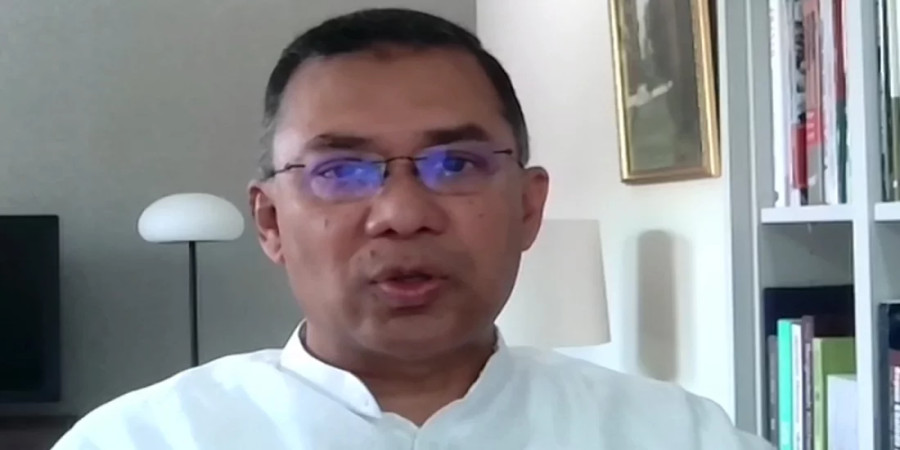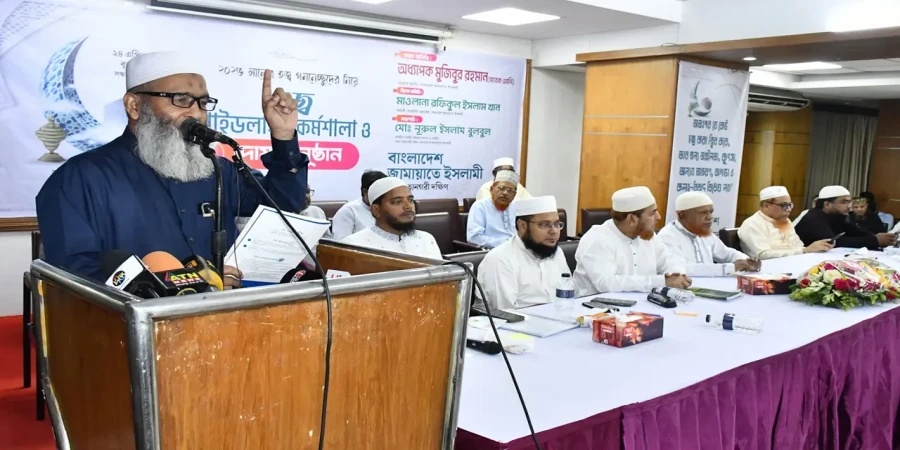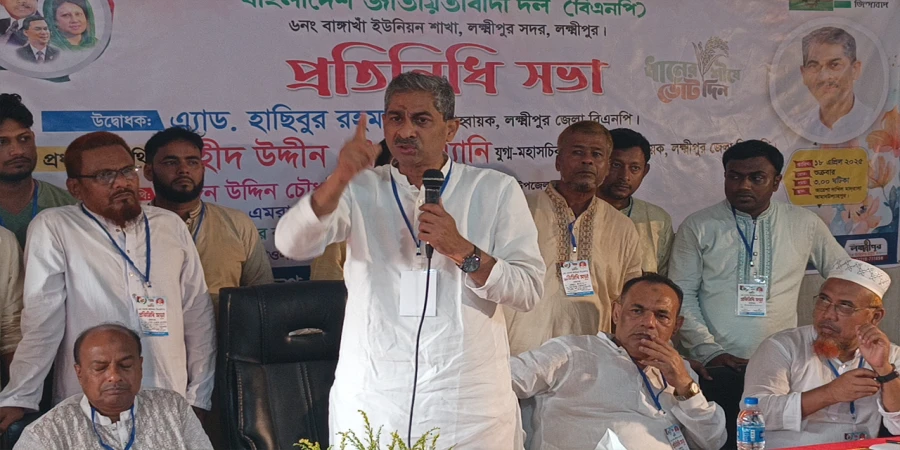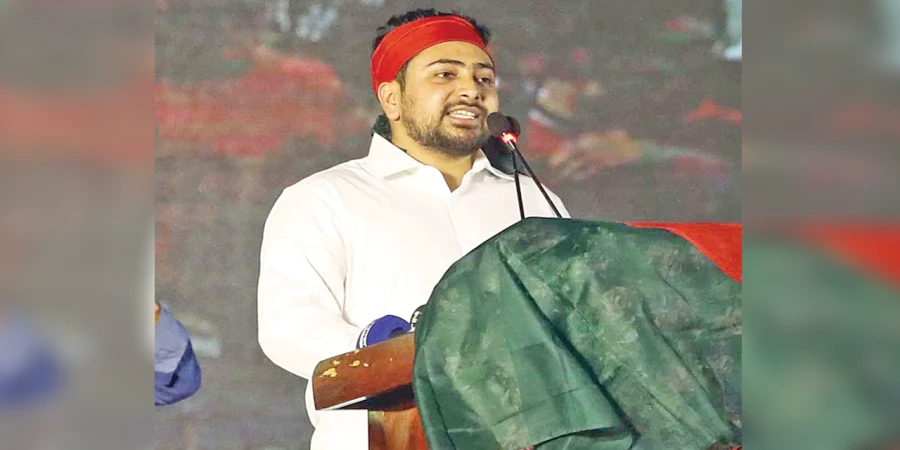
ছবি: Photo: Collected
BNP's acting chairman Tarique Rahman has called upon party leaders and activists to intensify their efforts and brace for a long struggle against “invisible forces” that hinder political progress. He emphasized that true success would require unwavering dedication, unity, and the ability to remove those within the party who act against public interest. His remarks came during a virtual participation in a workshop titled "31-Point Framework for State Reform and Public Engagement Training," organized for party activists from Kurigram, Lalmonirhat, and Gaibandha districts on Tuesday, April 22.
Rahman reiterated that the implementation of the BNP’s 31-point state reform plan is critical to addressing the structural issues facing the country. He stated that each of the 31 points must reach every household, and this responsibility lies primarily with the BNP’s district and upazila-level leaders and workers. He further noted that if the BNP succeeds in forming a government with public support, they are committed to executing this plan as a promise made to the 200 million citizens of Bangladesh.
Discussing the broader political vision of the BNP, Tarique Rahman underscored that the party’s mission is centered on alleviating the suffering of the people. He brought particular attention to the Teesta River, labeling it as one of the nation’s top-priority projects. According to him, the river affects nearly 30 million people, who are often vulnerable to either flooding from excess water or drought due to water scarcity. He pointed out the necessity of river dredging, embankment management, and integrated water conservation to ensure flood control and irrigation benefits.
Tarique Rahman assured that if the BNP gets the chance to lead the government, a structured and actionable plan for the Teesta project will be initiated at all costs. The initiative would prioritize enabling farmers to use river water during dry seasons and shielding communities from the damages of seasonal floods.
In response to questions and proposals posed by activists during the workshop, he acknowledged the unique cultural identities and heritage of different regions across Bangladesh. Although the country is not large in terms of geography, its population size and cultural diversity present both challenges and opportunities. Rahman stated that BNP values these differences and had previously implemented several measures to promote cultural development when in power—an approach they intend to continue in the future.
He also emphasized the integration of arts, culture, and sports into primary education. Such initiatives, he said, are essential for ensuring the mental and physical well-being of children, allowing them to grow up in a healthy and holistic environment. According to him, BNP envisions an educational framework that nurtures creativity and discipline through cultural exposure and active participation in sports from a young age.
The event was chaired by BNP Central Organizing Secretary Asadul Habib Dulu, and was attended by BNP Joint Secretary General Shahid Uddin Chowdhury Annie, Training Affairs Secretary Rasheda Begum Hera, and Nawaz Halima Arly, among others.
Throughout the session, Tarique Rahman remained firm in his call for party unity and discipline. He warned that without cohesion and decisive action against those who sabotage public trust, all efforts could be rendered futile. He urged party members to rise to the occasion, stand strong in the face of resistance, and remain focused on the mission to reform the state apparatus for the benefit of the people.
In closing, he reminded the participants of the long-term nature of political struggle and the importance of sustained efforts. Only by overcoming the unseen obstacles and maintaining a united front, he said, can the party hope to bring about meaningful change and fulfill its commitment to the people of Bangladesh.
repoter





